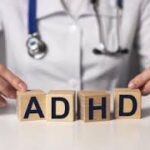Attention Deficit Hyperactivity Disorder (ADHD) is a neurodevelopmental disorder characterized by symptoms such as inattention, hyperactivity, and impulsivity. It affects individuals of all ages, though it often manifests in childhood and can persist into adulthood. While ADHD Treatment is primarily associated with challenges in focus and behavior, its impact on sleep is increasingly recognized as a significant aspect of the disorder. Understanding the intricate connection between ADHD and sleep is crucial for effectively managing both conditions and improving overall well-being.
The Bidirectional Relationship
The relationship between ADHD and sleep is complex and bidirectional. Individuals with ADHD frequently experience sleep disturbances, including difficulty falling asleep, staying asleep, and waking up feeling refreshed. Conversely, inadequate or disrupted sleep can exacerbate ADHD symptoms, leading to greater difficulties in concentration, impulse control, and emotional regulation.
Common Sleep Issues in ADHD
Delayed Sleep Phase Syndrome
Many individuals with ADHD have a delayed sleep-wake phase, meaning their natural sleep-wake cycle is shifted later than what is considered typical. This can result in difficulty falling asleep at a socially acceptable hour, leading to insufficient sleep duration and daytime sleepiness.
Restless Legs Syndrome (RLS) and Periodic Limb Movement Disorder (PLMD)
RLS, characterized by uncomfortable sensations in the legs and an irresistible urge to move them, and PLMD, marked by involuntary limb movements during sleep, are more prevalent in individuals with ADHD than in the general population. These conditions can disrupt sleep continuity and quality, contributing to daytime fatigue and impaired functioning.
Sleep-Disordered Breathing
Obstructive sleep apnea (OSA), a type of sleep-disordered breathing characterized by repetitive pauses in breathing during sleep due to upper airway obstruction, is more common in individuals with ADHD. OSA can lead to fragmented sleep and oxygen desaturation, impacting cognitive function, mood, and behavior during waking hours.
Insomnia
Insomnia, characterized by difficulty initiating or maintaining sleep, is a common complaint among individuals with ADHD. Racing thoughts, hyperarousal, and difficulty winding down at night contribute to sleep onset difficulties, while frequent awakenings and restless sleep can result in non-restorative sleep.
Impact of Sleep on ADHD Symptoms
Attention and Executive Functioning
Sleep deprivation impairs attention, concentration, and executive functioning—core areas of impairment in ADHD. Inadequate sleep exacerbates these cognitive deficits, making it harder for individuals with ADHD to focus, organize tasks, and inhibit impulsive behaviors.
Emotional Regulation
Quality sleep is essential for emotional regulation, yet individuals with ADHD often struggle with mood instability and irritability due to sleep disturbances. Sleep deprivation amplifies emotional reactivity and reduces resilience to stress, contributing to emotional dysregulation in ADHD.
Hyperactivity and Impulsivity
Sleep deprivation exacerbates hyperactivity and impulsivity, common behavioral symptoms of ADHD. Fatigue from poor sleep diminishes self-control and increases impulsivity, leading to impulsive decision-making and risk-taking behaviors.
Academic and Occupational Functioning
Sleep problems compromise academic and occupational functioning in individuals with ADHD. Daytime sleepiness, reduced alertness, and impaired cognitive performance due to poor sleep quality undermine academic achievement, job performance, and interpersonal relationships.
Underlying Mechanisms
Several factors contribute to the relationship between ADHD and sleep disturbances:
Neurobiological Factors
Neurotransmitter dysregulation, particularly involving dopamine and norepinephrine, plays a central role in both ADHD and sleep regulation. Abnormalities in the brain circuits governing arousal, attention, and sleep-wake regulation contribute to sleep problems in individuals with ADHD.
Circadian Rhythm Dysregulation
Disruptions in circadian rhythms, such as delayed sleep phase and irregular sleep-wake patterns, are common in ADHD. Genetic predispositions, environmental influences, and lifestyle factors can all contribute to circadian rhythm dysregulation in individuals with ADHD.
Comorbid Conditions
ADHD commonly coexists with other psychiatric and medical conditions that impact sleep, such as anxiety disorders, mood disorders, and substance use disorders. Addressing comorbidities is essential for optimizing sleep outcomes in individuals with ADHD.
Treatment Approaches
Managing sleep disturbances in individuals with ADHD requires a multifaceted approach:
Behavioral Interventions
Behavioral strategies, such as sleep hygiene education, stimulus control techniques, and relaxation exercises, can improve sleep quality and promote healthy sleep habits in individuals with ADHD.
Pharmacotherapy
Medications targeting ADHD symptoms, such as stimulants and non-stimulants, may also improve sleep-related outcomes by addressing underlying neurobiological mechanisms. However, careful monitoring and individualized treatment are necessary to mitigate potential side effects on sleep.
Complementary Therapies
Complementary therapies, including cognitive-behavioral therapy for insomnia (CBT-I), mindfulness-based interventions, and yoga, may complement traditional treatments and enhance sleep quality and ADHD symptom management.
Addressing Comorbidities
Identifying and treating comorbid conditions that contribute to sleep disturbances, such as anxiety, depression, or sleep-disordered breathing, is essential for optimizing sleep outcomes in individuals with ADHD.
Conclusion
The relationship between ADHD and sleep is multifaceted, with each condition influencing and exacerbating the other. Recognizing the bidirectional nature of this relationship is crucial for developing comprehensive treatment strategies that address both ADHD symptoms and sleep disturbances. By implementing behavioral interventions, pharmacotherapy, and complementary therapies tailored to individual needs, clinicians can improve sleep quality, enhance daytime functioning, and ultimately, improve the overall well-being of individuals with ADHD.




